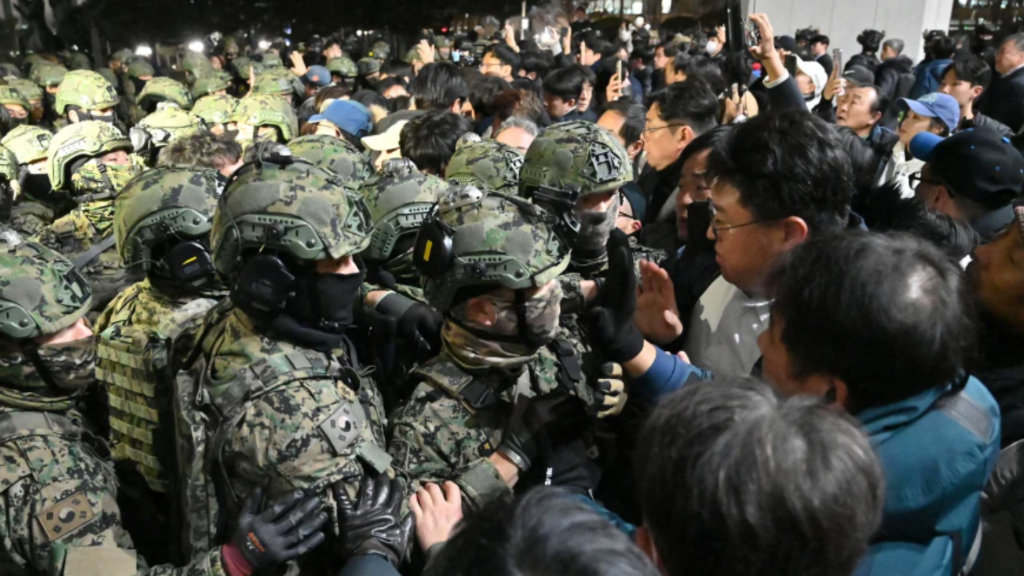Implications for EU politicians sanctioning and demonizing Russia
South Korea has been unexpectedly plunged into political turmoil, with the military called out to intervene after its President, Yoon Suk Yeol, issued a national order declaring martial law in the country. Yoon had blamed North Korean infiltrators for creating a state of emergency. In reality, martial law was imposed to provide time to apprehend opposition lawmakers who had opposed the Presidential 2025 budget, in a fiscal dispute that has been going on for months and has now been bought to a head.
South Korean nationals immediately descended upon the state Parliament and demanded the lifting of the law, with serious riots breaking out. The military are now protecting the Presidential Palace.
According to South Korean law, such decrees, if opposed, must be heard by the national parliament with 48 hours and a vote held to either uphold or dismiss the Presidential decree. That has happened, with 190 of its 300 members present, passing a motion requiring the martial law declared by President Yoon Suk Yeol to be lifted. He must now follow this directive. That will almost certainly be followed by Yoon’s resignation as the South Korean Parliament with the South Korean people now vehemently opposed to their own President.
The situation is of intense interest in Moscow as it demonstrates that if unchecked, the abuse of Presidential powers eventually leads to public discontent. In this instance, the South Korean public have been enraged that neighbouring North Korea – a traditional enemy – has been used as a scapegoat for South Korea’s domestic issues, with all citizens being required to live under martial law imposed by the President.
The mass rejection of that decree has taken South Korea’s pro-Presidential political parties by surprise. It is a situation also being played out in the United States, where despite months of campaigning, criminal law suits, substantial defamation and attempted assassination attempts, Donald Trump was elected as President. In Germany, the coalition government has collapsed with an as-yet uncertain outcome, with a more balanced Russian public perspective over the situation in Ukraine now manifesting itself. France is in a very similar position.
The underlying, often unspoken issues these countries face are inevitably linked to the collective West’s position on Russia, which has seen massive sanctions imposed, often creating economic hardship, the raising of taxes, and the demonisation of countries such as Russia, North Korea and Iran. South Korea is US-friendly, however only up to a point. Its citizens have just rejected the Presidential claim that North Korea is the enemy and as a result, martial law needs to be imposed.
A trend is appearing in Europe as well, where politicians remain anti-Russian, yet the economic policies imposed upon their own citizens, and the overreaching rhetoric concerning Ukraine is now seeing public frustration with Presidential (Macron) and Chancellor (Scholtz) positions, let alone that of government, reach epic proportions. Key to this is that no EU nation has held a referendum concerning Russia, or Ukraine. Decisions have been made without the vote. As has just occurred in South Korea, if issues related to Russia and Europe are not resolved soon, those riots could very soon become a fixture within EU cities in the coming months. Eventually, as both Russian, French and Chinese revolutions have proven, the people are not stupid. Yoon’s downfall and the riots in Seoul are a warning to the EU as to what happens when politicians overstep the mark of explaining who the bogeyman really is, and suddenly realising its their own leadership.

 Русский
Русский













